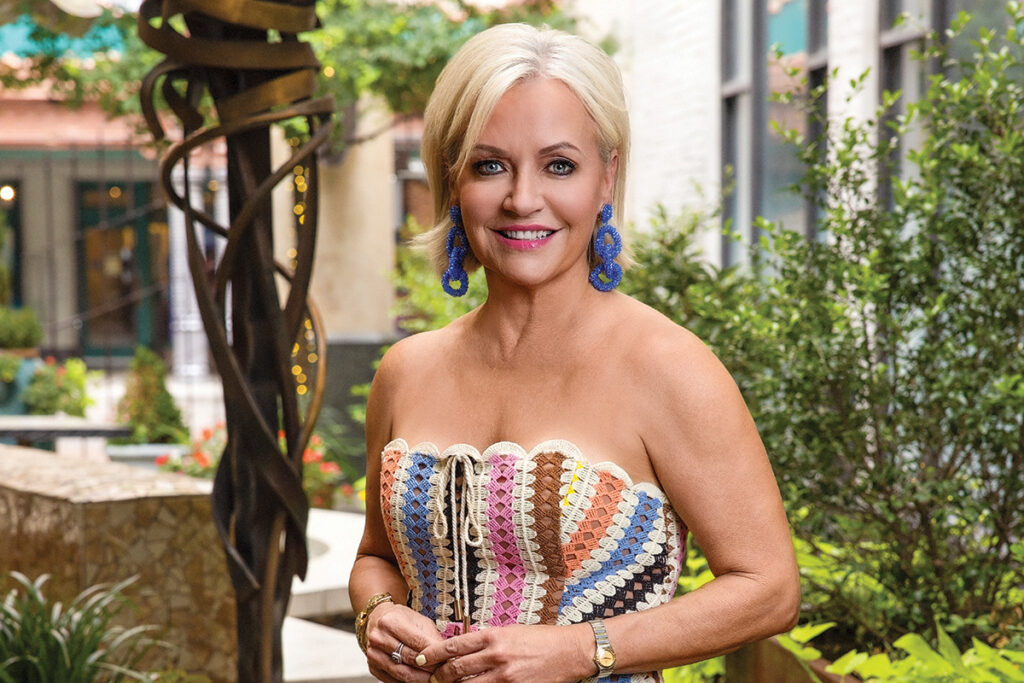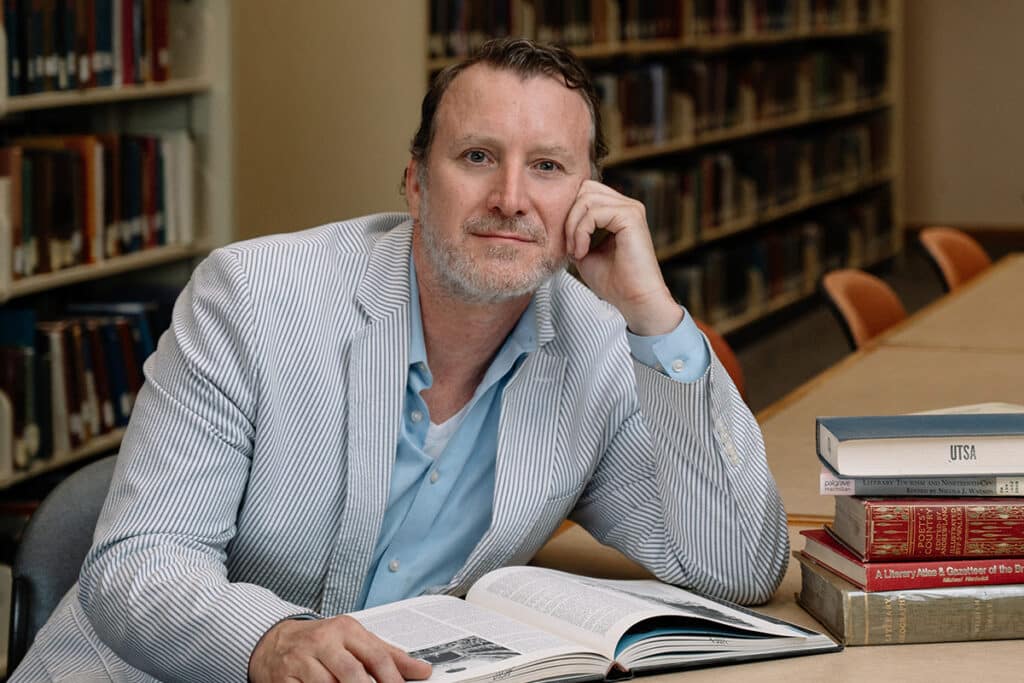Ivy Zwicker
Age: 38
Occupation: Director, Autism Treatment Center of San Antonio; owner, Hill Country Herbalist
Personal: Married 11 years to Ryan Zwicker, director of engineering for a firm that designs and manufactures vehicle air-conditioning systems; their dog Briar, cat Basil and cockatiel Chico “live in harmony,” sleeping in the same room after careful introductions.
Why she’s a Role Model: While holding down a demanding nonprofit leadership post, she apprenticed to an herbalist and since started her own herbal-products business.
Goals: Professionally, to launch the Autism Treatment Center’s Building Futures capital campaign; personally, to finish illustrating and to publish the children’s books she has written.
Best advice ever given: “My dad taught me to expect the unexpected, and I live my life by that. Very little surprises me. It’s our responsibility to see what’s coming so we know how to respond.”
Her own role models: “There are so many — anyone who takes the time to think about how they take part in the world, who has respect for the Earth and other people.”
Believes in: “Honesty, hard work and always finding opportunities to be a lifelong learner and teacher”
People would be surprised that I … “am restoring a little 1930s house. My husband and I partnered with my parents after we fell in love with the ‘bones’ of the house. We’re going to take it back to its true style.”
What she’s reading: “Anything herbal”; currently, it’s New Holistic Herbal, by David Hoffman.
When Ivy Zwicker started her first job after college, she says, “I thought I’d give it five years, then see what other opportunities I could find.” More than 14 years later, she’s still there, only now she’s head of the organization. At the same time, she found a way to get back to her roots, as the daughter of a botanist whose childhood found her “always outside, up a tree or looking at flowers.”
After growing up on the move – Harlingen, Yucatan and El Paso – Zwicker graduated from the University of Texas at San Antonio with a degree in psychology and answered an advertisement for a human resources and safety assistant at the Autism Treatment Center, one of only three such centers in Texas and only 30 nationwide. “As five years came and went, I became part of the mission,” she says, “not just working for the organization but part of it.” When she was ready to go back to school for a master’s degree, the center’s then-director “encouraged me to get it in business, since that’s what the organization needed,” says Zwicker, who earned her MBA in 2007. There was no conflict with her wanting to be a clinician, despite her undergraduate work in psychology: “I came here to be in management, and that’s where my natural strengths were,” she says. As she advanced to human resources manager, then operations manager and two years ago to director, the center grew, too, increasing its focus on children’s services. It now provides services for 92 children and adults with autism, a disorder that affects the development of social and communications skills. Young clients come for a diagnosis, receive occupational, physical and speech therapy and attend the center’s year-round school, accredited by the Texas Education Agency, while adults may participate in the residential program.
Starting with a special early-intervention program for children ages 3 to 8, the center offers support for people with autism across the life span. For its younger clients, there is Applied Behavior Analysis (ABA), a treatment approach that teaches social and verbal skills through observation and reinforcement. To make it accessible to more families, the center operates on a sliding scale, making treatment that privately would cost $40,000 affordable to families who pay anywhere from $15 to $800 a month. “We work with many families who wouldn’t otherwise have any place for their child,” says Zwicker. “When someone comes to us in crisis, they’ve had so many doors closed on them because of (the child’s) behaviors. We take that person in crisis and slowly work on the healing process.”
Children with autism, when uncomfortable interacting with others, may resort to violent or antisocial behaviors because they have learned that kicking, hitting or any other undesired behavior gets them away from the interaction. If allowed to continue, these behaviors are reinforced by experience and become harder to change. “What we do is very special,” says Zwicker. The center’s behavioral therapists observe the client, “find what’s going on, where they learned that aggressiveness and what they’re trying to communicate.” With interventions and exercises, a child may learn functional communication, whether through voice, sign language or pointing at pictures. Another child, who refuses to sit in a high chair to the point of being dangerously uncooperative, might learn after six months of positive reinforcement to sit safely in the chair and have a meal.
A saying in the field is that “If you’ve met one person with autism, then you’ve met one person with autism” – meaning that each person with autism-spectrum disorders is different. Some may be able to learn in a group setting, while others need intensive one-on-one therapy. At San Antonio’s Autism Treatment Center, says Zwicker, “We start with where a person is today, with no preconceived notions, study their behavior, gather at least a month’s worth of data and formalize a pattern, and at that baseline start the exercise of replacing undesired behavior with functional behavior.” Though not a clinician, Zwicker has seen the process work many times. “To see someone who has problems with aggressiveness learn to trust and not even a year later, be able to sit down and communicate and follow instructions – that’s what has kept me staying,” she says. “I see what we do, and I want to find a way to connect with the mission, bringing my own strengths and ability to be creative.”
A few years ago, she used that ability to solve a health problem of her own. From that experience came a new interest that led her to start a second career – which in turn, fit in with a fresh idea to enrich the center’s school program.
Afflicted in her early 30s with a puzzling combination of joint pain and gastrointestinal pain, Zwicker learned through testing and an elimination diet that her troubles were caused by food allergies. “I was eating foods my body was fighting with,” she says. “Once I started eliminating foods I was sensitive to, I felt great. It cleared up everything.”
She came out of the experience “with a profound interest in understanding food more,” she says. “I wanted an avenue to share it and to learn more about how plants and food can help our bodies.” Zwicker contacted an Austin herbalist and arranged for an apprenticeship, spending every weekend for a year plus bedtime reading on learning her new craft.
At about the same time, she was promoted to her present position at the Autism Treatment Center. Like her previous job changes, it felt like a natural progression, but it was also “an awesome responsibility,” she says. “It never feels completed, because there’s always a new challenge.” Applying to become a provider with state agencies, remodeling projects and plans for a first-ever capital campaign were among them; at the same time, Zwicker says, “We’re all getting ready to see what aging with autism looks like,” as the oldest adults with this diagnosis head into their 50s and 60s. Organizations like hers will have to come up with “best practices for this other end of the life span.” Because her day job is a demanding one, she chose not to become a clinical herbalist, “because I don’t have time to see people.” Instead, she says, “I wanted to learn to make skin-care products that I can trust and know are good for you.” At home, on the five-acre property she shares with her engineer husband Ryan, she planted herbs – lavender, calendula and bee balm are favorites — in raised beds within her 30-by-40-foot garden, where she also grows figs, tomatoes, carrots and other vegetables. Using herbs from her own garden or from trusted sources, Zwicker handcrafts the products in her Ivita line of lotions, scrubs and serums, available through her IvitaBotanicals store on www.Etsy.com and her Hill Country Herbalist site, www.hillcountryherbalist.com, where she also writes a gardening blog. She infuses her own oils with herbs because “I know how it should smell and look.”
Some years before, she started a garden at the Autism Treatment Center, an “outdoor classroom” for therapeutic horticulture. There, clients tend and harvest cabbage, broccoli, tomatoes, eggplant and flowering herbs, including echinacea, lavender and basil, all heirloom varieties. “It’s a safe way to connect with their world,” Zwicker says. “If something gets damaged, it will grow back. If someone eats something, that’s what it’s for.” Adult clients use some of the produce to prepare lunches for the Haven for Hope homeless shelter or Meals on Wheels, which delivers food to homebound individuals. “(The clients) have so much fun taking things out of the garden and making lunches, using the skills they’ve developed here,” she says, adding that she hopes that someday the center will be able to expand the program to offer produce directly to the public, taking the participants through “the whole cycle of growing and selling food.” To serve more families in need of its services on an expanded campus, the center plans to launch Phase II of its ongoing capital campaign for a new school building designed to accommodate students with sensory sensitivities and for more opportunities for adult clients.
Fortunately, Zwicker is blessed with “a lot of energy; my brain wants to stay busy.” As for her second life in the garden, she calls that “self-preservation, a healthy, wonderful outlet that makes me stronger.” After a weekend using “the other part of my brain,” she says, “by Monday I feel refreshed.”




